HIV rates on Sask. reserves higher than some African nations
Saskatchewan on-reserve HIV epidemic 'a real Canadian crisis,' says expert
An infectious disease specialist says the soaring rates of HIV on Saskatchewan First Nations are "shocking" and "a real Canadian crisis."
CBC's iTeam has learned the rate of new HIV infections on Saskatchewan reserves is 11 times higher than the national rate.
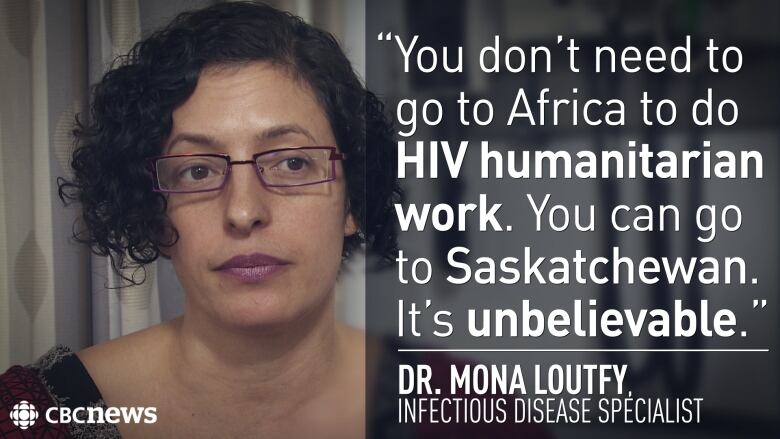
"Those are incident rates that are equivalent to an African country such as Nigeria," said Mona Loutfy, an infectious disease specialist with Women's College Hospital in Toronto.
And she says things could be much worse than they appear,because little testing has been done on Saskatchewan reserves.
Since July she's been coming to the province every couple of months for HIV clinics on the Ahtahkakoop First Nation.
"You don't need to go to Africa to do HIV humanitarian work. You can go to Saskatchewan," Loutfy said. "It's unbelievable."
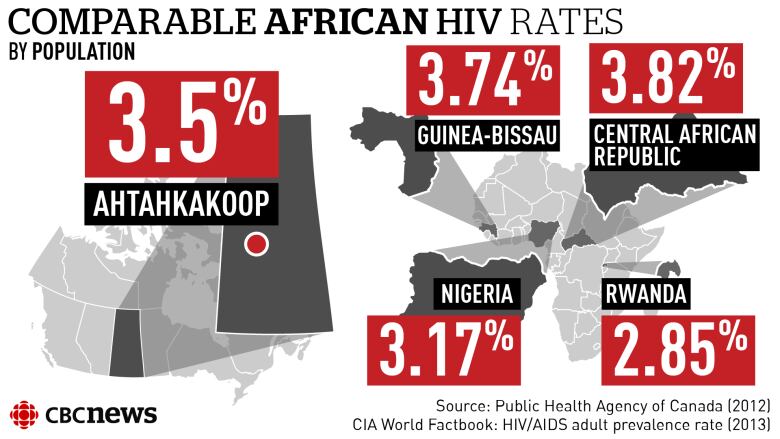
"I don't think they're being aggressive enough," Loutfy said. "I think they can do more."
HIV rates rising for a decade
Just a decade ago, the rate of new HIV infections on Saskatchewan First Nations was identical to the provincial average of about five infections per 100,000 people.
But since that time, it has soared. In 2011, the rate spiked to 95 per 100,000.
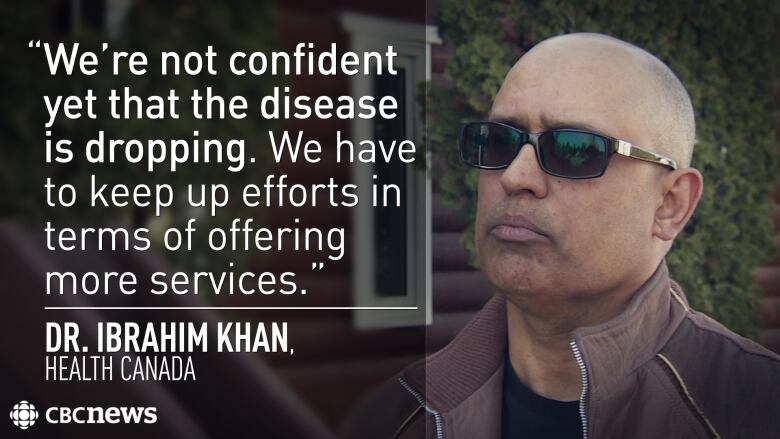
He saidtesting and treatment are being offered on a handful of reserves, but he acknowledged much more needs to be done.
"We're not confident yet that the disease is dropping," Khan said.
He said testing has shown that some reserves have virtually no HIV problem while others have a serious epidemic.
Ahtahkakoop a 'golden example'
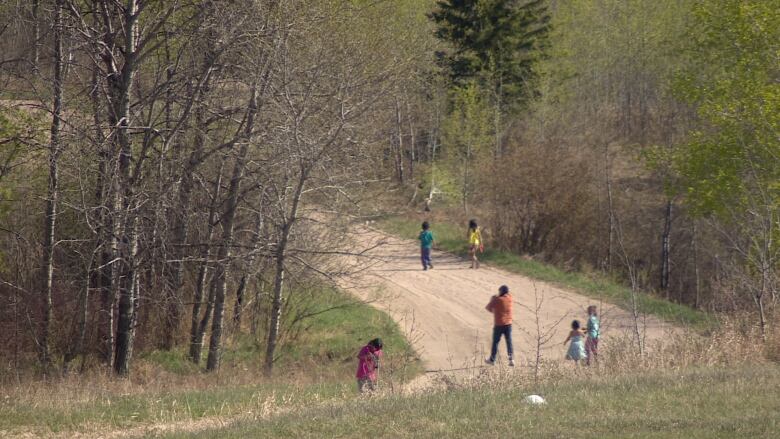
Health officials said 60 of the band's 1,700 on-reserve members are HIV positive. That's about 3.5 per cent of the population; a rate 17 times higher than the national average.
Back in 2011, Chief Larry Ahenakew was approached by federal health officials with the news.
"I was afraid myself when I first found out," Ahenakew said.
He said he and his council felt helpless, but they decided to take an open, transparent approach and ask for help.
"We don't hide. We let everybody know our numbers," he said."We have to take it seriously just to stop the transfer of infection disease of HIV."
Health Canada provided additional funding that pays for HIV testing and treatment in Ahtahkakoop's health clinic.

Tanys Isbister, whose home reserve is Ahtahkakoop, is the registered nurse who runs the program.
"Lots of people are very well-managed on their medications and take their medications daily, so lots of them,their viral load is undetectable," Isbister said.
Health Canada is also funding a couple of other programs on Ahtahkakoop, including a needle exchange program and Canada's only on-reserve methadone clinic.
HIV spreading through IV drug use
Those programs are aimed at addressing the source of the HIV epidemic.
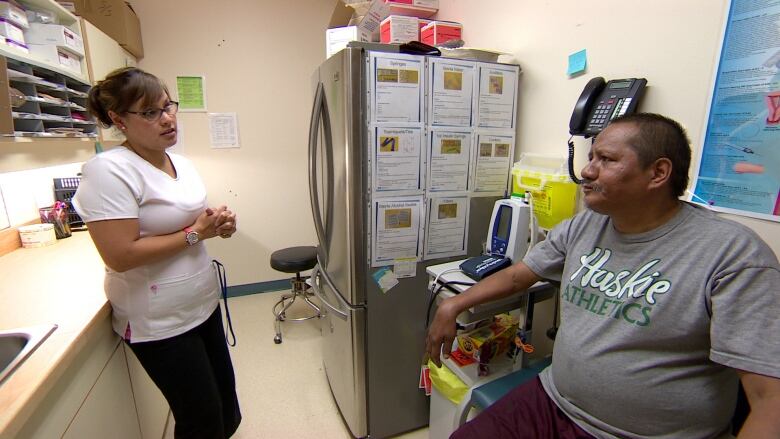
Loutfy saidthat's causing the disease to spread rapidly.
"So you'll get a mother who is injecting with a daughter who is injecting with an uncle and a cousin. So in our clinics we will see entire families as patients."
She said she's troubled that "about 70 [reserves] don't know what their HIV rates are and don't have any care programs," Loutfy said.
Loutfy said widespread testing must happen immediately on Saskatchewan reserves for the sake of public health.
Some reserves 'not ready' for HIV testing
Khan said he would like to see Ahtahkakoop's HIV program replicated across the province.
"So it has already proven that the care that you provide on reserve with this particular multidisciplinary and holistic approach is making a difference," Khan said.
However, he said, "not every community is willing and ready to offer that testing, so we go where you find an open door and you find the leadership open to that."
Darryl Caldwell,an HIV patient living on the Ahtahkakoop First Nation,travels the province teaching aboriginal people about HIV.
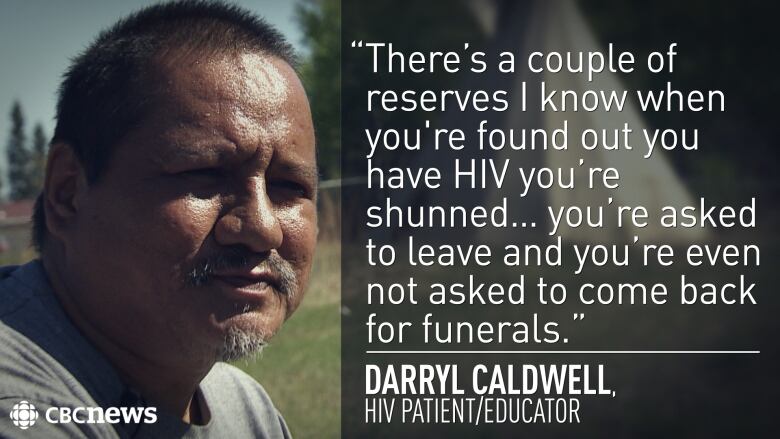
"There's a couple of reserves I know when you're found out you have HIV you're shunned."
He's frustrated that some chiefs won't approve HIV testing and treatment on their reserves.
"It's just sad," Caldwell said.
"In those cases you can't do [anything] about it, I don't think, because the chief and council are the ones you answer to on the reserves."
Khan said there are continuing discussions with First Nations leaders about the importance of this issue.
"We work in a very respectful manner. We work with the community leadership," Khan said.
However, Loutfy is not impressed with that approach.
"Do you think it's respectful to let people die in First Nations communities not even knowing their HIV diagnoses with a disease that is completely manageable and where people can have life-saving medication?" she asked.
With files from the CBC's Roxanna Woloshyn














_(720p).jpg)


 OFFICIAL HD MUSIC VIDEO.jpg)
.jpg)



























































































